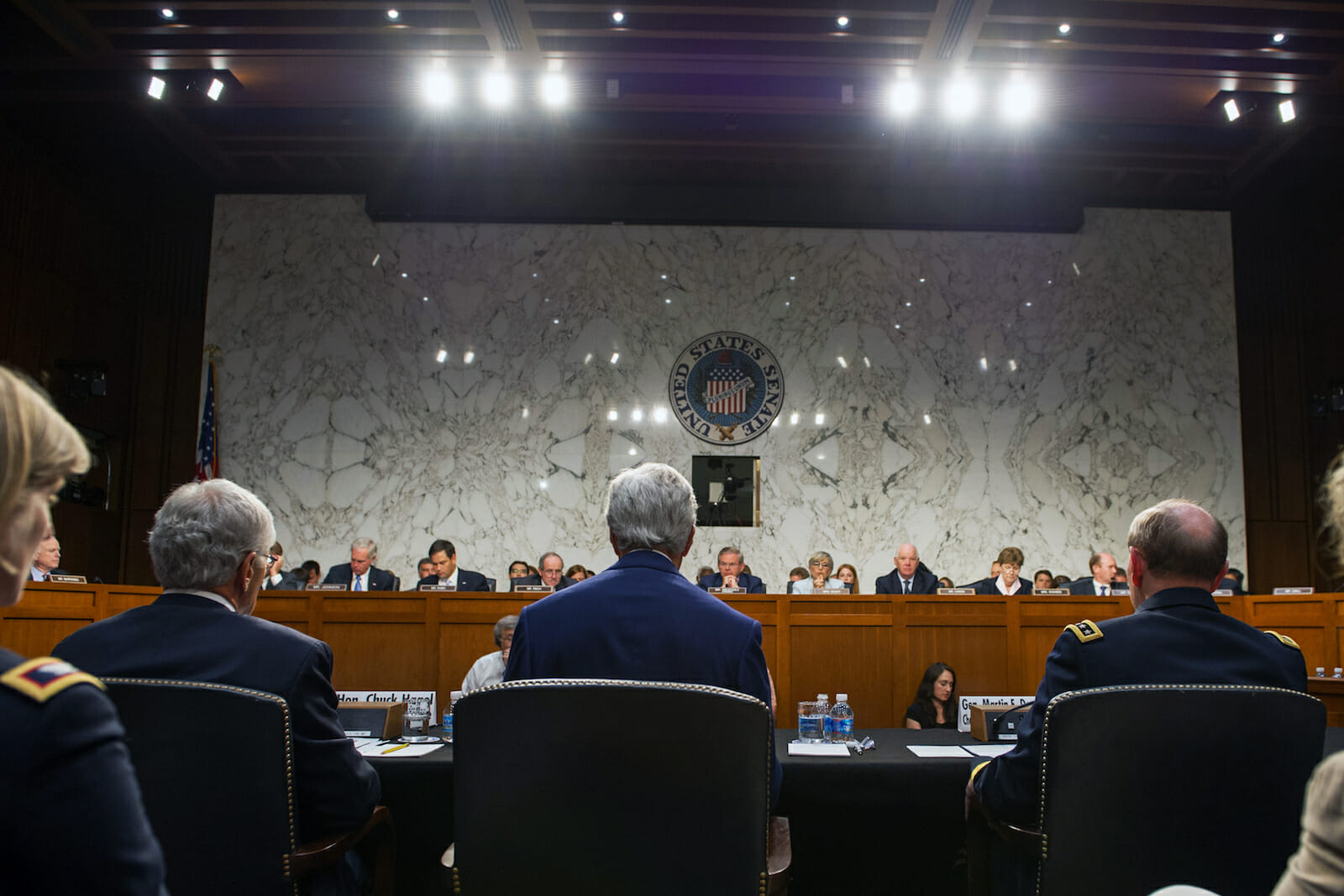
Politics
How GOP Battles May Influence American Foreign Policy Moving Forward
On Wednesday morning following the midterm elections, a resounding victory call rang through Washington celebrating a freshly elected GOP majority. The 2014-midterm elections were, as a despondent Jon Stewart of “The Daily Show” put it, a complete shellacking. Elsewhere around the world, a skeptical reevaluation of American foreign policy was taking place as the ballots were counted. From Russia to Turkey, the international community is beginning to place hard bets on how a new US senate will react to a global context ripe with conflict and difficult decisions.
In every midterm election in the post-WWII era, the opposition party has made gains each time during the second term of a president — with the only exception being President Bill Clinton’s malleable 1998 congress. While the results may not be entirely surprising, the election’s overwhelming potential as a global influence is dangerously real.
For years, Republicans have criticized President Obama’s foreign policy and the effectiveness of his national security initiatives, even while their own party has had to live down costly blunders in Iraq and Afghanistan during the Bush administration. While ironic, past leadership figures will assume renewed authority. Sen. John McCain (R-AZ) will resume his role as an ideological military supremacist in the defense debates.
Whether the subject concerns nuclear negotiations with Iran or the current military campaign against ISIS/ISIL, it is increasingly likely that the Republican Party in the House and Senate will use committee chairmanships and majority status to set terms and change the confines of the debate.
Though the majority of media coverage has been focused on how a Republican majority will work to transform President Obama’s domestic policies — highlighting immigration reform and public healthcare — the real area of influence will be reflected in the Republican approach to global issues where the United States has a direct role.
Leadership
John McCain has widely blamed President Obama’s ‘weak’ foreign policy that allowed Russian President Vladimir Putin to run roughshod over eastern Ukraine without providing Ukraine leaders with the necessary military support to fight back.
It is safe to expect a significant realignment of NATO’s shadow over Ukraine, though an honest assumption says the US will more than likely lead with unadulterated authority. Kiev said on Wednesday it would halt payment of state funds in areas controlled by pro-Moscow rebels, according to Reuters — though the decision is non-unified with the results of yesterday’s Midterm election, which provides an immediate condition that begs for international oversight. Both sides have hardened positions on what is rapidly becoming a “frozen conflict”: a long-term stalemate that the West believes is Russia’s goal.
Sen. James Inhofe (R-OK) was reelected last night with an impressive 20-percent margin of victory. He is the ranking Republican on the Armed Services Committee and has consistently criticized Obama for backing down from his threat to attack the Syrian regime of Bashar al-Assad. Inhofe effectively blames Obama for leaving a power vacuum in war-torn Syria that gave rise to the murderous ISIS jihadists who now control the territory.
Inhofe has spoken in the past in favor of further military involvement in the region, which includes putting troops on the ground to recover territory lost in Iraq. He ran a successful reelection campaign that mirrored Obama’s foreign policy missteps and Oklahoman’s existential fear of creeping Islamic extremism.
In the coming weeks, the ranking Republican on the Senate Foreign Relations Committee Sen. Bob Corker (R-TN) will more than likely be promoted to chairman. He would replace New Jersey Democratic senator Robert Menendez. Corker may be one of the single most interesting power brokers in Congress moving forwards. He has publicly and popularly voiced his opinion that Obama is giving far too much in the current negotiations with Iran over the future of that country’s nuclear program and international sanctions.
On the other hand, Corker recently spoke to The Tennessean about his kind of pre-emptive approach to problems around the world, and more so how they cost money. Congress has followed a common generational trend by ignoring foreign aid, making it less of a priority in recent years — lead by Republicans who find the less than 1-percent budget expenditure as a waste of taxpayer money. In a meeting with the editorial board, Corker acknowledged that it matters the way the US engages the world and how it can head off a problem before it becomes a crisis. Corker did not completely toe the party line in the interview. An important lesson may be gained from this example: one cannot over generalize the influence of a GOP Senate and House majority on world affairs.
Teamwork
The first test of this new relationship could come during Congress’s next lame duck session — after next week’s election but before the GOP takes control — when Senate Minority Leader Mitch McConnell will likely press for congressional authorization for Obama’s expanded military operations against ISIS in Syria and Iraq. Legally, Obama and his top aides have argued that they already have the necessary authority from previous votes on U.S. involvement in Afghanistan and Iraq. Senate Majority Leader Harry Reid (D-NV), House Democratic Leader Nancy Pelosi of California and other Democratic leaders are resisting another formal vote.
Elizabeth N. Saunders, an assistant political science and international affairs professor at the George Washington University School of International Affairs, told The Fiscal Times that a turnover of power in the Senate would escalate tensions between Congress and the president on the conduct of foreign policy.
If there is one thing that could seriously undermine a tough Republican challenge to Obama in his handling of the war on ISIS: his dealings with the pugnacious Putin, and the nuclear talks with Iran. There is an organically grown rift within the GOP on national security issues — one that will more than likely be expedited over the course of the next few weeks.
In one camp, McCain, Corker, Inhofe and Sen. Lindsey Graham of South Carolina favor bold U.S. action oversees — otherwise known as the nationalist group. In the other camp, Sen. Rand Paul (R-KY) and other libertarian and Tea Party adherents have championed what some view as an isolationist movement that sets a very high bar for further U.S. military activity overseas and increases defense spending — an ideology Sen. Paul has outlined as an evolving doctrine of “conservative realism.”
Only time will reveal the influence of a GOP majority on world affairs, but it will undoubtedly begin with a battle from within: a battle that may potentially fracture a unified party in a way many would imagined impossible, especially following this election cycle.
